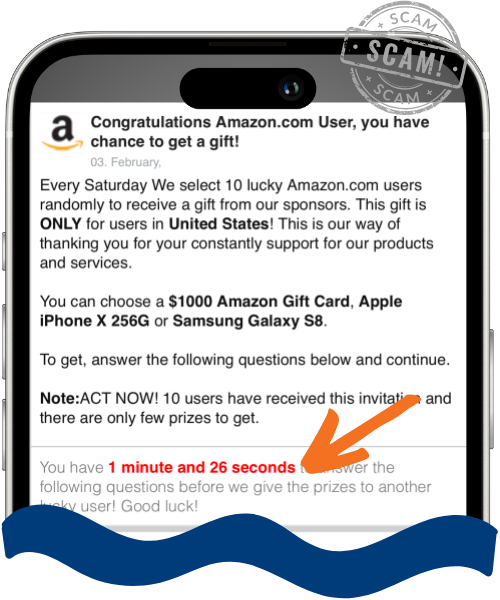Communication Fraud 101
DEFINITIONS
Review the Rundown
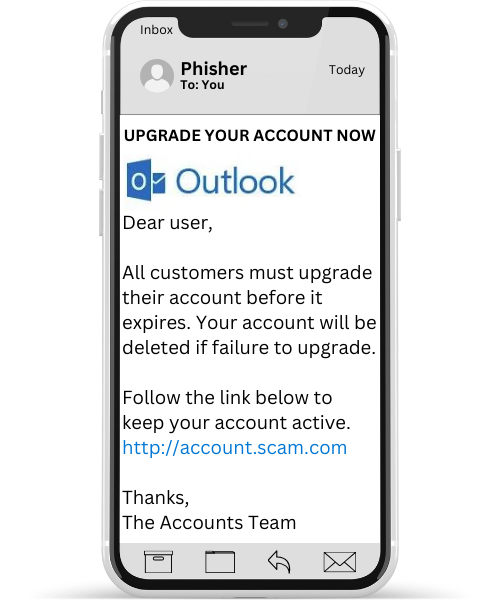
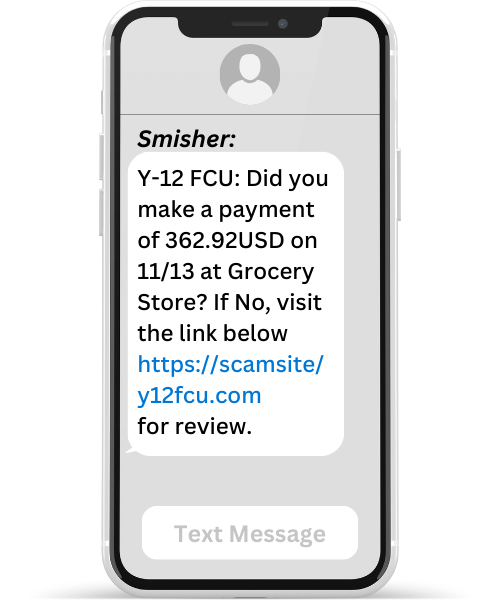
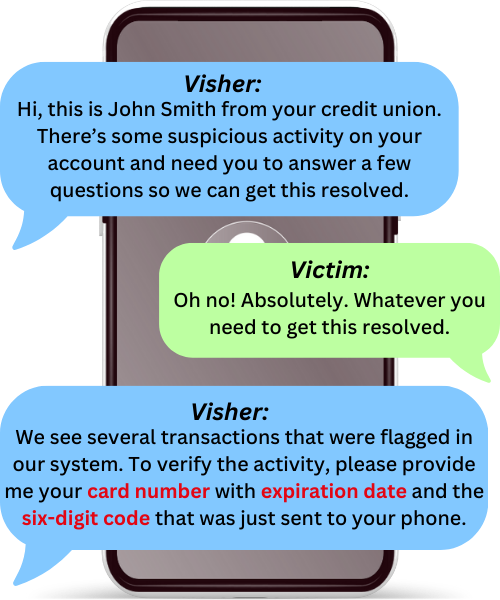
SMISHING SCAMS
Conquer Smishing Shenanigans
Bank on the fact that we will NEVER:
Ask for card info
PRO TIP:
When in doubt, reach out.
Request your login info
PRO TIP:
If account info's their wish,
it's probably a phish.
Use an unrecognizable number
PRO TIP:
Pause and think if you
receive a weird link.
CONTEST SCAMS
Unmask prize ploys
Here's how it usually goes down:
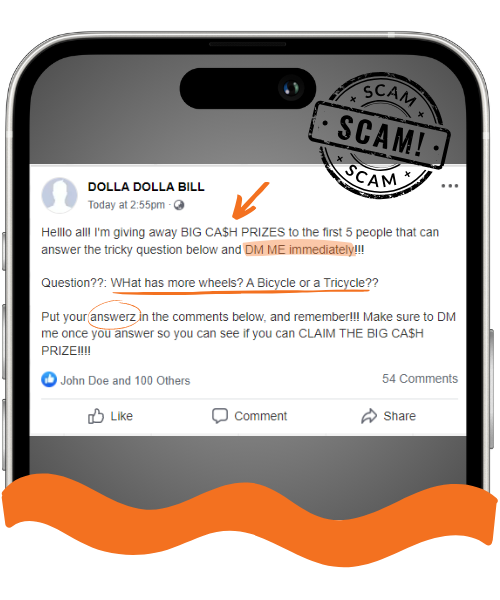
MARKETPLACE SCAMS
Master the art of buyer beware
Spot red flags like a pro.
Too Good To Be True
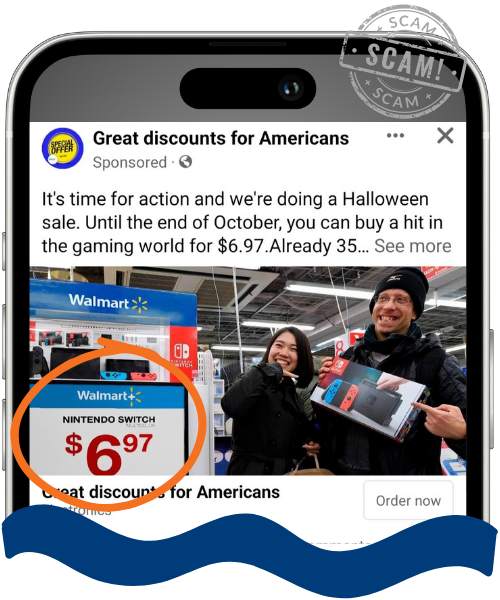
Requests for Personal Info
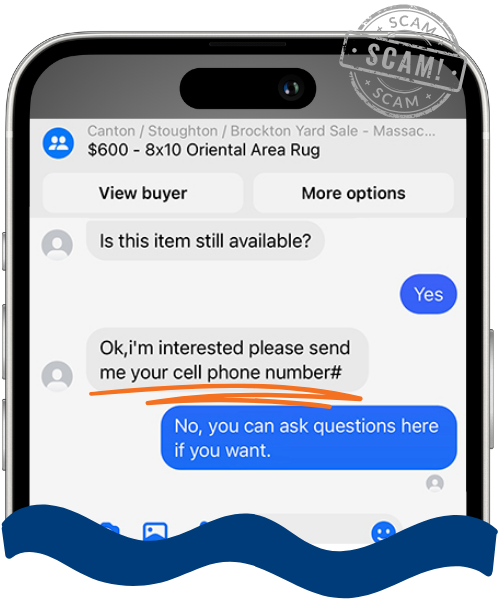
Urgency Tactics
